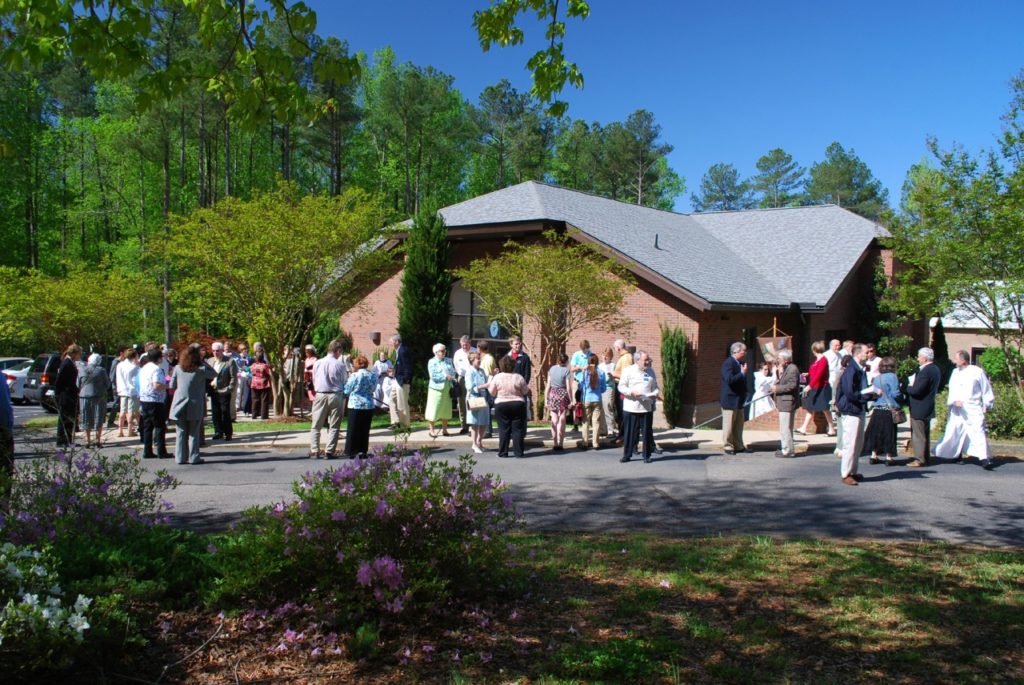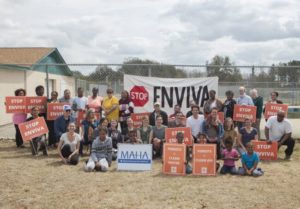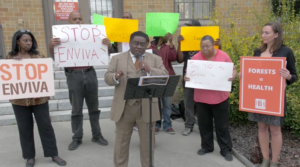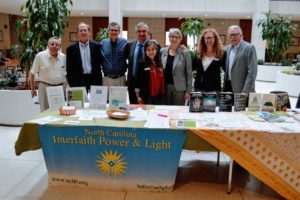Church of the Nativity, Raleigh Awarded $10,000 Grant
Church of the Nativity, Raleigh Awarded $10,000 Grant
The Episcopal Church recently announced the awarding of 16 grants totaling $123,910 in the second round of grantmaking managed by the Advisory Council for the Stewardship of Creation and approved by the Executive  Council.
Council.
Among the recipients is Nativity, Raleigh, awarded $10,000 toward its work, Becoming the Good Soil, of reducing the serious effects of climate change by engaging in regenerative agriculture through carbon farming, specifically by supplementing land with compost. In simple terms, one goal of carbon farming is to increase soil organic matter (SOM) to help draw carbon out of the atmosphere and sequester it in the ground.
In addition to the implementation of carbon farming to local soil, Nativity will work to help educate individuals and congregations learn more about regenerative agriculture through, among other channels, the development of a white paper to be made available to all churches.
From Nativity:
“Caring for Creation has deep roots in our spiritual lives at Church of the Nativity, and for many years we have supported and been a local voice for North Carolina Interfaith Power & Light (NCIPL) in seeking hopeful solutions for climate change. To avoid severe climate change, reducing emissions from burning fossil fuels will not be enough. Carbon must also be withdrawn from the atmosphere and sequestered into the soil.”
Nativity’s four main goals are 1) educating and encouraging individuals and churches in the Episcopal Diocese of NC to make compost from organic waste, 2) building a statewide organization of the primary stakeholders within government, the private sector, and the farming and academic communities with the goal of launching large scale carbon farming in NC, 3) planning and hosting a NC Carbon Farming Summit meeting that will produce a comprehensive strategy for the project, and 4) publishing a white paper that will summarize the rationale and strategy for the project.
Join us in congratulating Church of the Nativity and all the hard working individuals seeing this through!
For more information visit http://nativityonline.org/

 Now Enviva is proposing to build their fourth wood pellet biomass facility in the town of Hamlet in rural Richmond County. 50 acres of forests a day in North and South Carolina would be turned into pellets and then shipped to Europe to burn for electricity. This community is already dealing with pollution and environmental injustice due to other polluting industries and has been ranked 90 out of 100 counties in the State of North Carolina for health outcomes.
Now Enviva is proposing to build their fourth wood pellet biomass facility in the town of Hamlet in rural Richmond County. 50 acres of forests a day in North and South Carolina would be turned into pellets and then shipped to Europe to burn for electricity. This community is already dealing with pollution and environmental injustice due to other polluting industries and has been ranked 90 out of 100 counties in the State of North Carolina for health outcomes. Neither the local citizens, nor the state of North Carolina needs another wood pellet mill. The health and economic impacts would be devastating, and the community doesn’t want it. A victory in Richmond County is a victory for the South, for the forests, and for all the communities in the South who face environmental injustice.
Neither the local citizens, nor the state of North Carolina needs another wood pellet mill. The health and economic impacts would be devastating, and the community doesn’t want it. A victory in Richmond County is a victory for the South, for the forests, and for all the communities in the South who face environmental injustice.
 Join NC Interfaith Power & Light’s lay and faith leader network for our Advocating with Compassion Day at the North Carolina General Assembly. Meet with your elected officials to hear their visions for NC’s future and to express your support for new and existing clean, renewable and energy efficient policies.
Join NC Interfaith Power & Light’s lay and faith leader network for our Advocating with Compassion Day at the North Carolina General Assembly. Meet with your elected officials to hear their visions for NC’s future and to express your support for new and existing clean, renewable and energy efficient policies. 